 New research from the Niels Bohr Institute shows that cement made with waste ash from sugar production is stronger than ordinary cement. The research shows that the ash helps to bind water in the cement so that it is stronger, can withstand higher pressure and crumbles less. At the same time, energy is saved and pollution from cement production is reduced.
New research from the Niels Bohr Institute shows that cement made with waste ash from sugar production is stronger than ordinary cement. The research shows that the ash helps to bind water in the cement so that it is stronger, can withstand higher pressure and crumbles less. At the same time, energy is saved and pollution from cement production is reduced.
Sep 16th, 2013
Read more
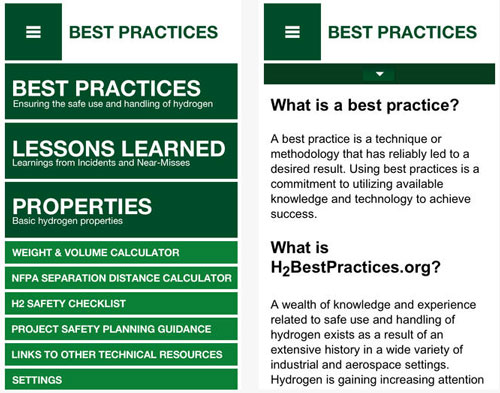 Engineers and scientists at the U.S. Department of Energy's Pacific Northwest National Laboratory have developed an app that focuses on hydrogen safety.
Engineers and scientists at the U.S. Department of Energy's Pacific Northwest National Laboratory have developed an app that focuses on hydrogen safety.
Sep 13th, 2013
Read more
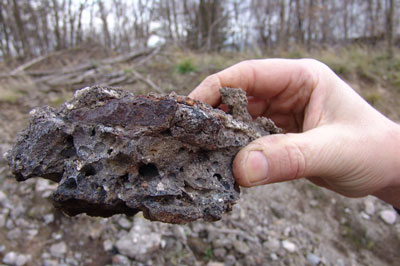 Metallurgical plant dumps harbor important raw materials such as metals and minerals that often have not been used yet. The reason: comprehensive data regarding the exact reusable material potential of these dumps is missing. To close this gap, Fraunhofer UMSICHT is coordinating the REStrateGIS project. The objective is to develop a multi-scalar resource register for metallurgical plant dumps.
Metallurgical plant dumps harbor important raw materials such as metals and minerals that often have not been used yet. The reason: comprehensive data regarding the exact reusable material potential of these dumps is missing. To close this gap, Fraunhofer UMSICHT is coordinating the REStrateGIS project. The objective is to develop a multi-scalar resource register for metallurgical plant dumps.
Sep 13th, 2013
Read more
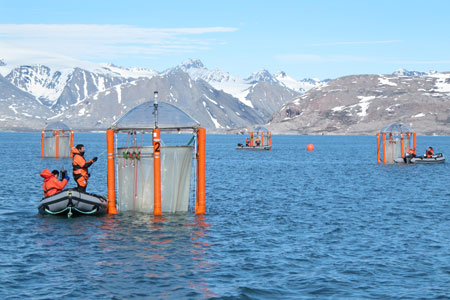 As the climate changes and oceans' acidity increases, tiny plankton seem set to succeed. An international team of marine scientists has found that the smallest plankton groups thrive under elevated carbon dioxide levels. This could cause an imbalance in the food web as well as decrease ocean CO2 uptake, an important regulator of global climate.
As the climate changes and oceans' acidity increases, tiny plankton seem set to succeed. An international team of marine scientists has found that the smallest plankton groups thrive under elevated carbon dioxide levels. This could cause an imbalance in the food web as well as decrease ocean CO2 uptake, an important regulator of global climate.
Sep 13th, 2013
Read more
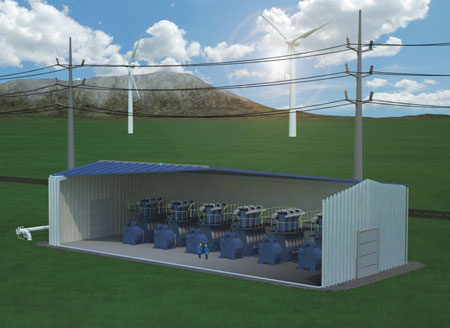 Multi-year development culminates in grid connection and startup of breakthrough bulk energy storage technology.
Multi-year development culminates in grid connection and startup of breakthrough bulk energy storage technology.
Sep 13th, 2013
Read more
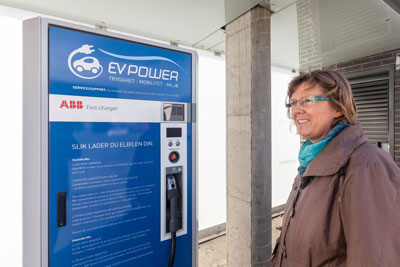 Researchers are aiming to remove the electric car market's biggest problem - the fear of not reaching the next charging station.
Researchers are aiming to remove the electric car market's biggest problem - the fear of not reaching the next charging station.
Sep 13th, 2013
Read more
Acidification of the Arctic Ocean is occurring faster than projected according to new findings. The increase in rate is being blamed on rapidly melting sea ice, a process that may have important consequences for health of the Arctic ecosystem.
Sep 12th, 2013
Read more
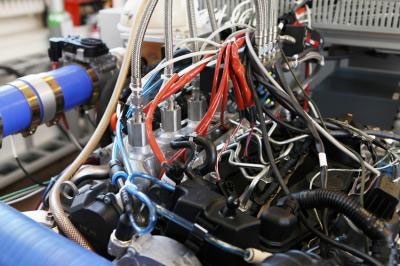 Researchers at ETH Zurich have developed an internal combustion engine that emits less than half the CO2 compared to a regular engine without compromising performance. This corresponds to fuel consumption of less than 2.4l per 100km. This natural gas-diesel hybrid engine is based on a system of sophisticated control engineering.
Researchers at ETH Zurich have developed an internal combustion engine that emits less than half the CO2 compared to a regular engine without compromising performance. This corresponds to fuel consumption of less than 2.4l per 100km. This natural gas-diesel hybrid engine is based on a system of sophisticated control engineering.
Sep 12th, 2013
Read more
 Reporting on research done by undergraduate students at a community college, Douglas Schauer, Ph.D., said that cilantro - also known as coriander and Thai parsley - shows promise as a much-needed new 'biosorbent' for removing lead and other potentially toxic heavy metals from contaminated water.
Reporting on research done by undergraduate students at a community college, Douglas Schauer, Ph.D., said that cilantro - also known as coriander and Thai parsley - shows promise as a much-needed new 'biosorbent' for removing lead and other potentially toxic heavy metals from contaminated water.
Sep 12th, 2013
Read more
Soitec's new module, which is already in industrial volume production, has the highest efficiency of any commercial product available for multi-megawatt installations.
Sep 12th, 2013
Read more
Further delay in the implementation of comprehensive international climate policies could substantially increase the short-term costs of climate change mitigation. Global economic growth would be cut back by up to 7 percent within the first decade after climate policy implementation if the current international stalemate is continued until 2030 - compared to 2 percent if a climate agreement is reached by 2015 already, a study to be published next Tuesday by scientists of the Potsdam Institute for Climate Impact Research (PIK) shows.
Sep 12th, 2013
Read more
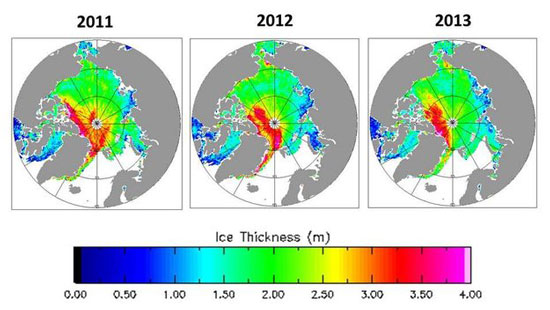 Offering new insights into our fragile polar regions, ESA's CryoSat mission has provided three consecutive years of Arctic sea-ice thickness measurements, which show that the ice continues to thin.
Offering new insights into our fragile polar regions, ESA's CryoSat mission has provided three consecutive years of Arctic sea-ice thickness measurements, which show that the ice continues to thin.
Sep 12th, 2013
Read more
Clean energy financing by the world's development banks increased 19% last year to break through the $100bn-a-year barrier for the first time. The top three banks were Germany's KfW, China Development Bank and the Brazilian Development Bank (BNDES).
Sep 11th, 2013
Read more
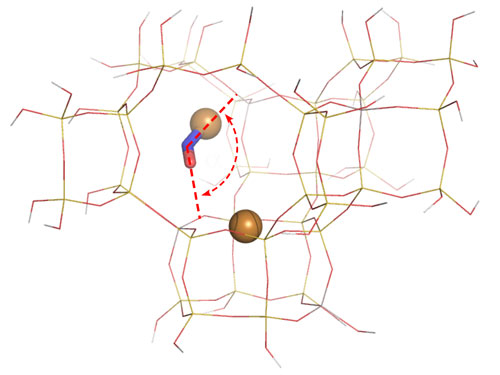 The newest catalytic converters in diesel engines blast away a pollutant from combustion with the help of ammonia. New research shows that the catalyst attacks its target pollutant in an unusual way, providing insight into how to make the best catalytic converters.
The newest catalytic converters in diesel engines blast away a pollutant from combustion with the help of ammonia. New research shows that the catalyst attacks its target pollutant in an unusual way, providing insight into how to make the best catalytic converters.
Sep 10th, 2013
Read more
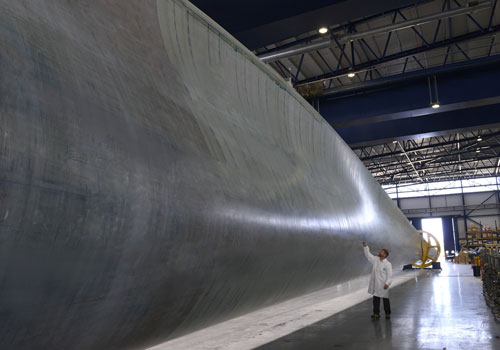 Vestas has produced the first prototype 80 meter blade for the V164-8.0 MW - the world's most powerful offshore wind turbine - at the R+D centre on the Isle of Wight, UK. The blade will now undergo an extensive testing regime to ensure total reliability.
Vestas has produced the first prototype 80 meter blade for the V164-8.0 MW - the world's most powerful offshore wind turbine - at the R+D centre on the Isle of Wight, UK. The blade will now undergo an extensive testing regime to ensure total reliability.
Sep 10th, 2013
Read more
 Gas flaring by the oil industry and smoke from residential burning contributes more black carbon pollution to Arctic than previously thought - potentially speeding the melting of Arctic sea ice and contributing to the fast rate of warming in the region.
Gas flaring by the oil industry and smoke from residential burning contributes more black carbon pollution to Arctic than previously thought - potentially speeding the melting of Arctic sea ice and contributing to the fast rate of warming in the region.
Sep 10th, 2013
Read more
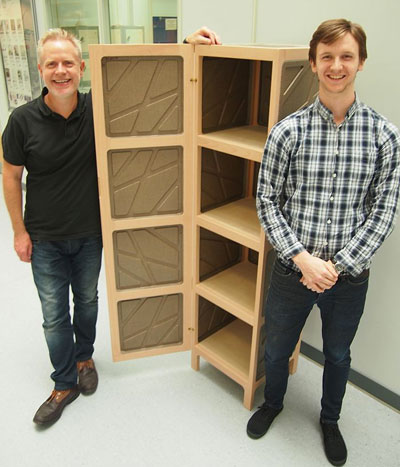 A furniture design academic from Sheffield Hallam University has started creating furniture made from 100 per cent biodegradable material, which can be composted at the end of its lifespan.
A furniture design academic from Sheffield Hallam University has started creating furniture made from 100 per cent biodegradable material, which can be composted at the end of its lifespan.
Sep 10th, 2013
Read more
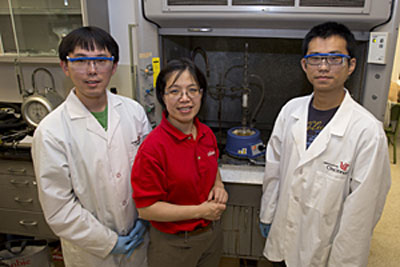 For many of us, it's the fuel that wakes us up and gets us started on our day. Now, University of Cincinnati researchers are discovering that an ingredient in our old coffee grounds might someday serve as a cheaper, cleaner fuel for our cars, furnaces and other energy sources.
For many of us, it's the fuel that wakes us up and gets us started on our day. Now, University of Cincinnati researchers are discovering that an ingredient in our old coffee grounds might someday serve as a cheaper, cleaner fuel for our cars, furnaces and other energy sources.
Sep 9th, 2013
Read more
 New research from the Niels Bohr Institute shows that cement made with waste ash from sugar production is stronger than ordinary cement. The research shows that the ash helps to bind water in the cement so that it is stronger, can withstand higher pressure and crumbles less. At the same time, energy is saved and pollution from cement production is reduced.
New research from the Niels Bohr Institute shows that cement made with waste ash from sugar production is stronger than ordinary cement. The research shows that the ash helps to bind water in the cement so that it is stronger, can withstand higher pressure and crumbles less. At the same time, energy is saved and pollution from cement production is reduced.
 Subscribe to our Cleantech News feed
Subscribe to our Cleantech News feed











